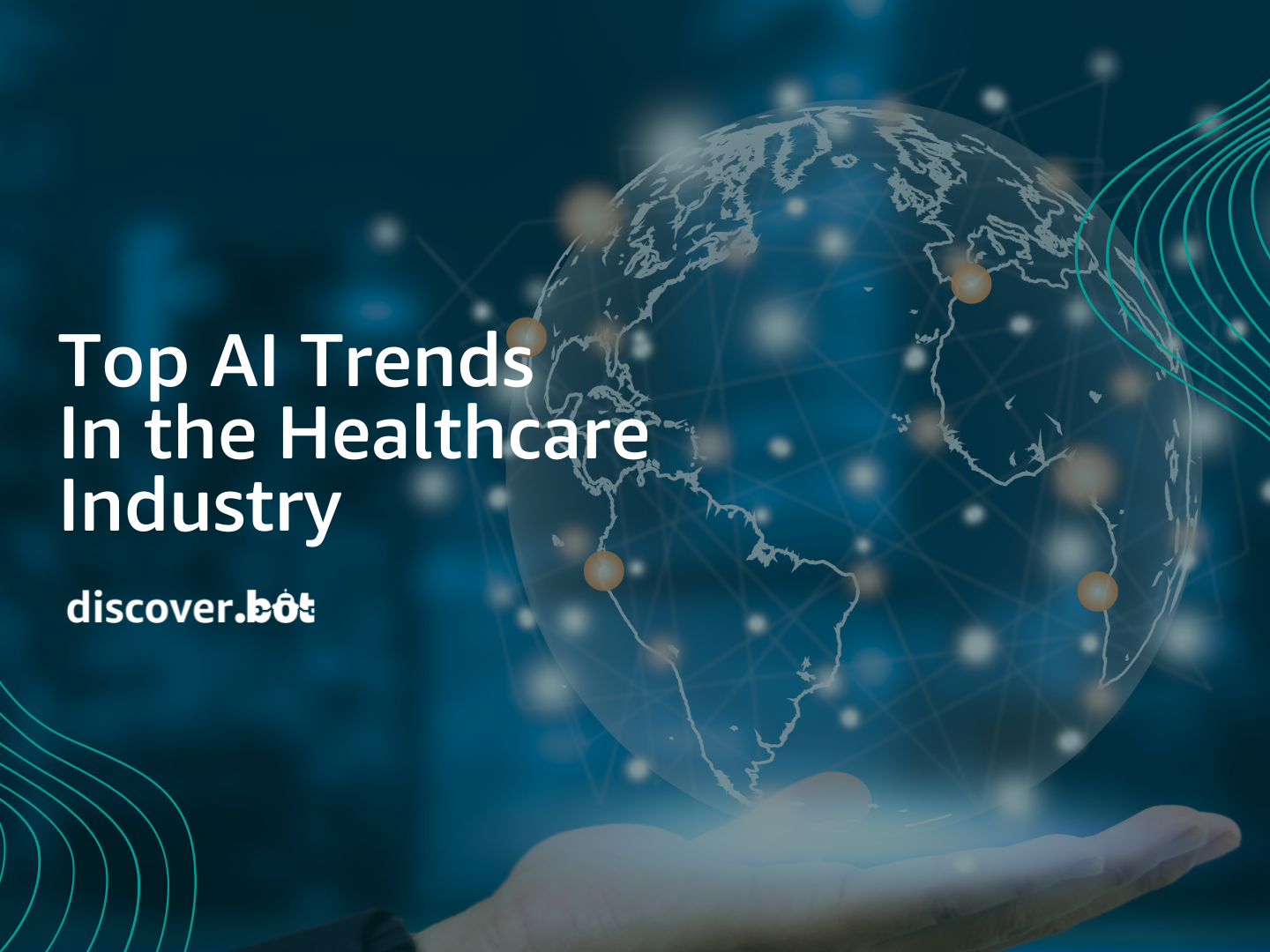Healthcare is undergoing an incredible transformation—one that’s changing virtually every portion of the industry, both digitally and physically. It has become increasingly clear that in the coming years, healthcare will continue to be defined by the development and implementation of artificial intelligence (AI) technologies. And these technologies will alter the industry as we know it.
The strides made in the field of AI in healthcare have been significant, and the idea of a world in which AI can deliver consistent and significant improvements is more promising than ever. In fact, the market for Artificial intelligence (AI) – specifically, machine learning (ML) tools in healthcare is forecast to top $20 million in 2023.
Our partners at Discover.bot – an Amazon online community for bot developers and conversational AI – share below insights on the top Artificial intelligence trends in the Healthcare industry.
AI as a medical device
A new artificial intelligence medical device software is taking the healthcare industry by storm and will forever change clinical diagnosing. According to statistics reported by CB insights, correctly identified 87.4 percent of patients with more than mild diabetic retinopathy and correctly identified 89 percent of those who didn’t have it. IDX-DR is one of the many AI software products approved by the U.S. Food & Drug Administration (FDA) in recent months for clinical commercial applications.
Another program, Viz.ai, has officially been approved to analyze CT scans and to notify healthcare providers of potential strokes in patients. Viz.ai is a healthcare start-up that uses artificial intelligence to help medical professionals spot early signs of stroke and aims to become a leader in the industry.
Virtual assistants for personalized care
Virtual assistants, an AI-driven technology, can help people with diseases like Alzheimer’s and dementia to improve their lives by altering the way they manage their daily activities. For example, a patient who has been diagnosed with Alzheimer’s can turn to a virtual assistant for reminders to eat, take their medication, and more.
Virtual healthcare assistants can provide 24/7 patient monitoring and, with an increasing senior population, this is an AI trend in healthcare that will continue to gain momentum.
Caption AI ultrasound technology
The FDA approved Caption AI ultrasound technology that assists medical professionals in capturing echocardiographic images of a patient’s heart without any specialized training. This process has been especially beneficial during the pandemic because it helps reduce hospital staffs’ risk of exposure to the coronavirus while also reducing the strain on limited resources in emergency rooms and ICUs dedicated to caring for patients with COVID-19. Machine learning trains the software to spot high-quality 2D ultrasound images of the heart and even to record video clips of it—changing the way heart disease is diagnosed.
MelaFind and early skin cancer detection
A new program, MelaFind, is another key example of artificial intelligence in the healthcare industry. Working with algorithms, this technology uses infrared light to evaluate pigmented lesions—even allowing dermatologists to analyze irregular moles and to diagnose melanoma and other serious skin cancers. MelaFind has the potential to help with the early detection of cancer, making it a massive breakthrough in both healthcare and artificial intelligence.
Robot-assisted therapy
Stroke survivors often spend months or even years trying to regain their mobility. The combination of AI and robotics in healthcare can help speed this process, with physical therapists using robotics powered by AI to help their patients learn to move their injured ligaments again. One of the latest breakthroughs, a robotic arm brace, can sense electromyography (EMG) signals through non-invasive sensors. This robotic device then restores function to a patient’s paralyzed arms by detecting weak muscle signals. It then activates a motor to move the hand and arm, giving the patients the ability to use their brains to move their hands as if they were doing it by themselves. AI-powered robot-assisted therapy has made gigantic strides over the years and continues to positively impact the healthcare industry.
Automated Customer Care
A new virtual assistant, Wisdom Ai by Teledentistry, is helping dental and insurance offices handle patient front desk inquiries like scheduling appointments, emergency services, and which insurances are accepted. With Wisdom Ai, patients can self-service right from their smartphones 24/7 without needing to chat with a front desk agent. There’s no staff training required, and Wisdom AI seamlessly integrates with most practice management software systems quickly and easily.
Another prominent example with Zeel, the leading provider of in-home healthcare and telehealth services targeting musculoskeletal injury and stress, is using multimodal automation to help with veteran referrals. Zeel was struggling to keep up with their high call demand, so they turned to NLX. NLX offered Zeel a quick solution for new veteran referrals to assist in scheduling appointments using the Conversations by NLX platform. Zeel’s veteran patients can now complete their intake forms easily and begin their care and services, without the need to contact a customer service representative.
A new era of breakthroughs for AI in healthcare
With the current trends that are making waves in the healthcare industry, AI is ushering in a new era of clinical quality and breakthrough growth in-patient care. From cancer detection to imaging and robotics, there are nearly endless opportunities for AI, which will continue to deploy more precise, efficient, and impactful technologies to help improve and forever change the healthcare industry.
To learn more about conversational AI industry insights, check out our partner’s blog at Discover.bot.

Guest Post: Top AI trends in the healthcare industry to look out for in 2023
Our partners at Discover.bot share insights on the top Artificial intelligence trends in the Healthcare industry in 2023.